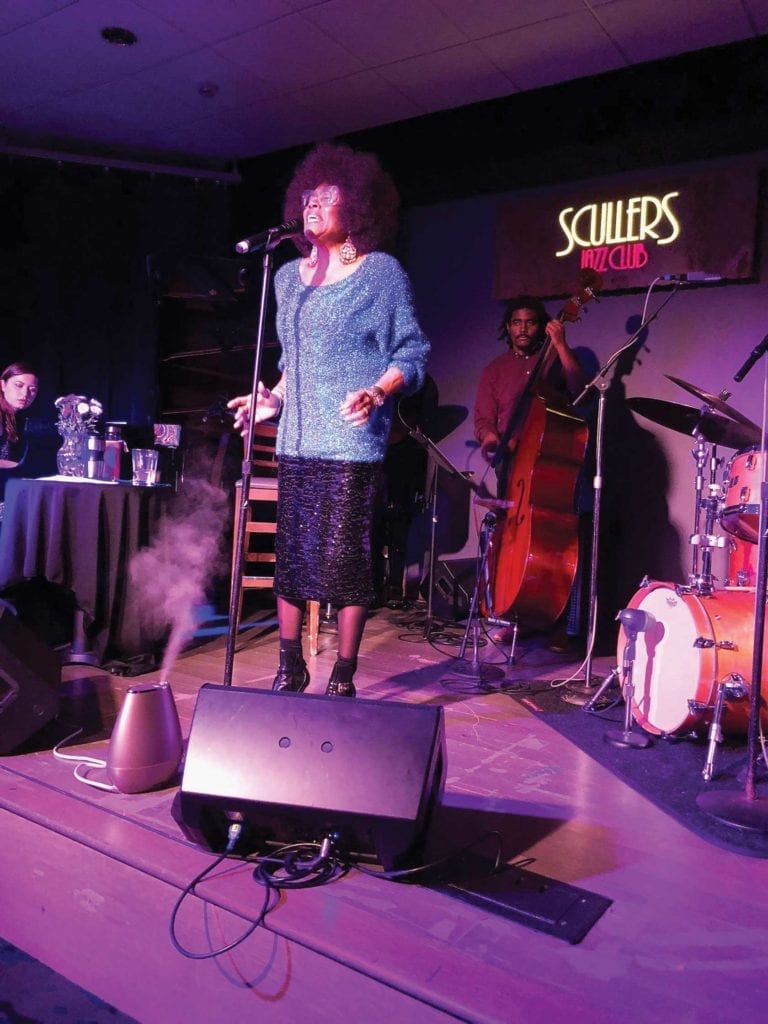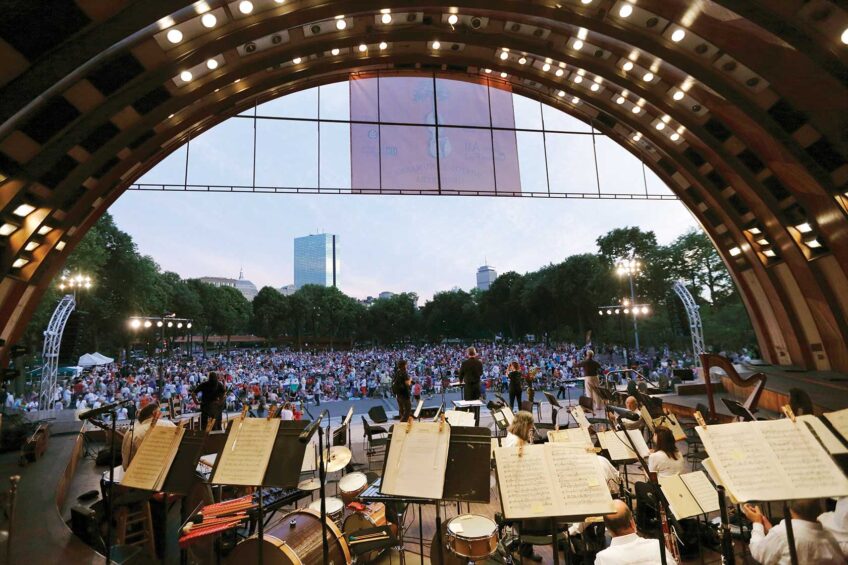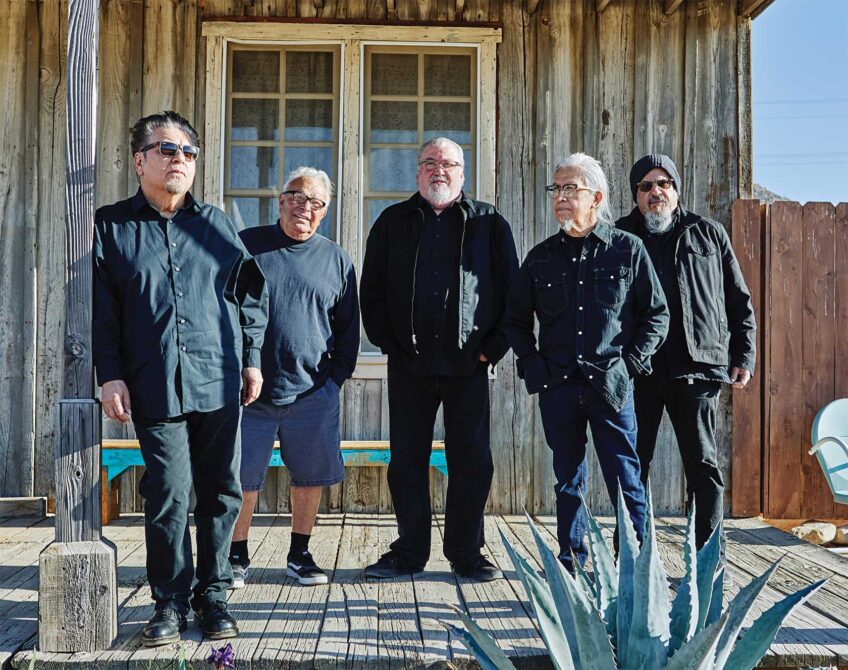Bridgewater reflects on being bandleader
Grammy-winning singer says Hub jazz scene one of the best

Dee Dee Bridgewater performs regularly in Boston, and last month she had a two-night stint at Scullers Jazz Club in Allston. The winner of three Grammy awards and a Tony, Dee Dee continues to challenge herself to the delight of audiences around the globe in a career that spans nearly fifty years.
“Memphis, I’m Ready,” her most recent recording (2017), is an emotional tribute to the soulful tunes and era of the 1960s and 1970s, and a departure from her earlier work that is more readily identifiable as jazz. Her dad was a Memphis DJ known as, “Matt the Platter Cat.”
“It was music I needed to experience and listen to after my mother’s death,” Dee Dee told the Banner. “I needed to find something to lift me up and make me dance.”
Born in Memphis, raised in Flint, Michigan, having lived twenty-four years in France, and now a resident of New Orleans, Dee Dee’s art absorbs and brings to life her deep appreciation for resilience and vitality. Whether it is scat singing, as she performed in Boston, or a song made famous by Al Green, like, “I Can’t Get Next To You,” on her Memphis CD, you know it is Dee Dee’s voice, she is that original and distinctive.

Dee Dee Bridgewater performs at Scullers.
Photo: Scott Haas
Her show at Scullers featured a quartet of piano, bass, drums, and her voice, with songs made famous by Betty Carter and Billie Holiday.
“Sometimes I’m happy, and sometimes I’m blue,” sang Dee Dee.
Her physicality on the stage evidenced her work as an actress, winning a Tony in 1975 for her performance as “Glinda” in “The Wiz” and the British Laurence Olivier Nomination for Best Actress in a Musical starring in the London production of “Lady Day” in 1987.
Dee Dee spoke to the Banner about her life and music.
Q: As a woman in jazz, what changes, if any, do you observe in both how fellow musicians and audiences regard your art over the years?
A: I had to learn to assert myself as the leader of the band. And that didn’t happen until the mid 1990s. I didn’t like the arrangements of some of the songs, which happened to have been made by my basssist. I spoke to him, told him he needed to change them, and he was incensed. It was a defining moment to realize I am the boss. Two years later he quit the band. Look, jazz is a macho art—and it’s a delicate balance for me as a woman. I have to be respected as the leader of the band, which is like a family.
Q: Your voice is your instrument. Can you say a few words about that.
A: The voice for me is the original instrument. So, for example, when I do my own solos, I’m speaking to other musicians in the band. It’s most important to communicate with the band. I also recreate sounds like trying to recall Satchmo singing with Ella Fitzgerald.
Q: Jazz creates a safe, sane place of calm and dignity, but at the same time the music does not lull one into complacency, does it?
A: Not at all. Music that comes from an individual who is creating from a spiritual place is restorative. Not commercial.
Q: Are there performers in hip-hop and popular music you enjoy listening to and feel inspired by?
A: Well, when I get home from work, I love silence. No TV. What I’ve been listening to lately are the music of Dhafer Youssef, a Tunisian singer, and Oumou Sangaré, a singer from Mali. I’ve recorded work that draws on Africa, like my earlier CD, “Red Earth,” a lot of which was recorded in Mali. I feel the need to reconnect to Africa.
Q: Some musicians create a sound and stick with it. Others, like Miles Davis and Bob Dylan and you, reinvent themselves. Does the desire or need for reinvention come from within you or is it a response to your environment or some combination of these?
A: My need for change comes from within me and it’s something that can be effected by things around me, such as politics and fashion. The goal I have is to constantly challenge myself. I don’t think there’s anything worse than complacency. I don’t want to relax. Most artists are about that constant need to create. I need to make an emotional connection to the music.
Q: Finally, since we’re in Boston, and you received an Honorary Doctorate from Berklee in 2015, what’s your impression of the jazz scene here?
A: Boston is probably one of the primary cities in the country for jazz. You have Berklee, and Boston University also has a great music department. There is a lot of music accessibility in Boston, it’s a very open city in that way. And you know? I just think of Boston as a very creative city musically.






